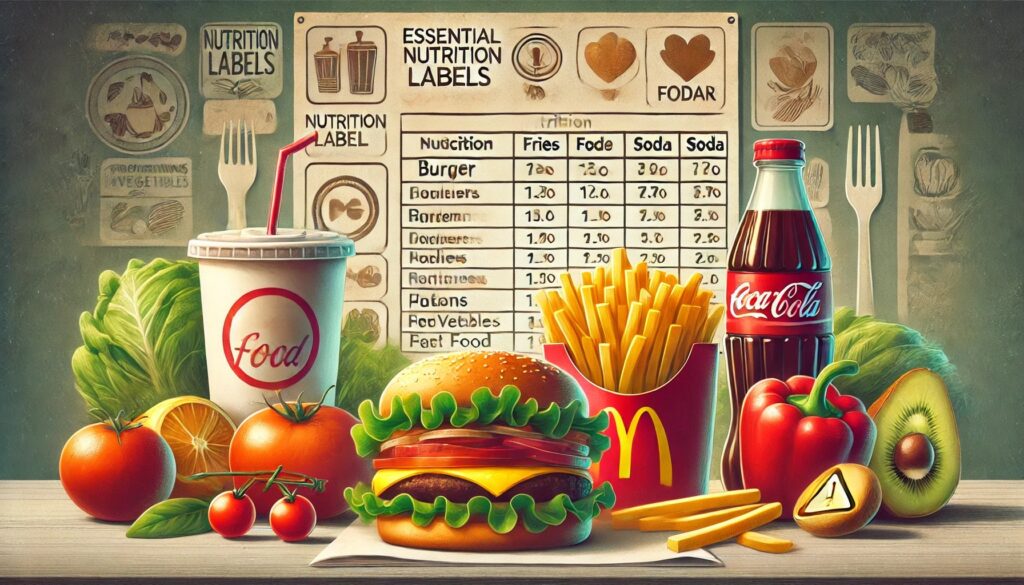Fast food has become a staple in modern life due to its convenience and affordability. However, the short-term benefits of fast food come with long-term health consequences. Let’s explore how fast food negatively impacts your body and overall well-being.
1. High in Unhealthy Fats and Calories

Fast food is often loaded with trans fats and saturated fats, which increase bad cholesterol levels and risk of heart disease. The calorie-dense nature of fast food also leads to weight gain and obesity, especially when consumed regularly.
2. Excessive Sodium Content

Fast food is typically high in sodium to enhance flavor and extend shelf life. Over time, excessive sodium intake can lead to high blood pressure, kidney damage, and an increased risk of strokes.
3. Low in Nutritional Value

Most fast food options lack essential nutrients like vitamins, minerals, and fiber. Regular consumption can result in deficiencies, leaving your body undernourished despite a high caloric intake.
4. Increases Risk of Chronic Diseases

Frequent consumption of fast food is linked to chronic illnesses such as diabetes, cardiovascular disease, and certain types of cancer. High sugar levels in fast food beverages can also contribute to insulin resistance and type 2 diabetes.
5. Negative Impact on Mental Health

Fast food consumption has been associated with an increased risk of depression and anxiety. Poor nutrition affects brain function and mood, reducing your overall mental well-being.
6. Encourages Poor Eating Habits

The convenience of fast food fosters a culture of mindless eating and dependency on quick, unhealthy meals. This can lead to long-term poor eating habits that are hard to break.
Conclusion
While fast food may be a quick solution to hunger, its long-term impact on health is far from harmless. Reducing fast food intake and opting for healthier alternatives can improve your quality of life and protect against a range of health issues. Remember, small dietary changes today can lead to a healthier tomorrow.


0 Comments